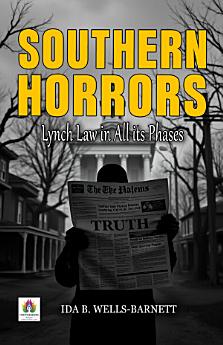Southern Horrors: Lynch Law in All Its Phases
About this ebook
This searing investigation offers not only heart-wrenching accounts of lynching victims’ stories, but also a bold challenge to the social and political systems that allowed such atrocities to occur with impunity. In a time when speaking out against Southern racial terror meant risking your life, Ida B. Wells-Barnett stood tall as a beacon of resistance. Through her fearless reporting, she exposes the moral bankruptcy of those who supported the violence, and advocates for justice, truth, and protection of innocent lives. Her voice emerges from these pages with the raw clarity of someone who knew that silence was not an option.
At its core, Southern Horrors is a scathing indictment of racial injustice in America. Wells-Barnett lays bare the calculated use of lynching as a tool of racial control, targeting Black men, women, and communities during the rise of Jim Crow. Her sharp prose and irrefutable evidence challenge readers to confront the deeply uncomfortable truths of the nation's past. By spotlighting the economic, political, and sexual undercurrents behind mob violence, she forces society to face the reality of institutionalized hate and the manipulation of public opinion by white-dominated media and institutions.
But this book is not just a chronicle of suffering—it is a manifesto of black resistance writing, a revolutionary cry for dignity, equality, and human rights. Wells-Barnett speaks not only for the voiceless, but also directly to the conscience of America. Her work is a foundational text in both African-American history and early civil rights activism, positioning her as a towering figure in the fight for freedom and justice. Her exposure of lies and her demand for accountability resonate even today, reminding us that the struggle against oppression is ongoing and deeply rooted.
For modern readers, Southern Horrors is a necessary, urgent read—a timeless work of historical investigative journalism that still echoes in today’s fight for civil rights. Its relevance extends far beyond its original publication, offering critical insight into the evolution of historical race relations and the legacies of trauma, resilience, and courage that define the African-American experience. This book is a vital piece of African-American women's voices and a key to understanding the roots of contemporary racial struggles.
Essential for students, activists, educators, and anyone who cares about justice, Southern Horrors: Lynch Law in All Its Phases is more than a historical document—it is a call to moral responsibility. A testimony of bravery by a pioneering black author, it demands to be read, remembered, and acted upon. The issues that Wells-Barnett addressed are not just echoes of the past—they are the cries of the present, waiting for society to respond with conscience and courage.







